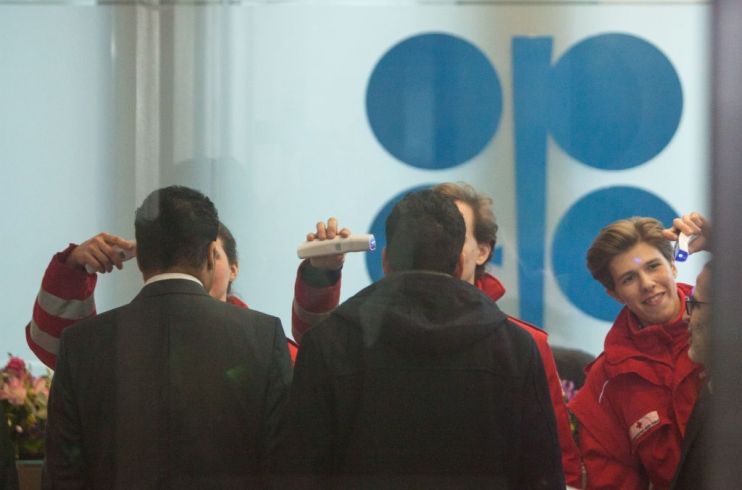Oil prices fall again as Russia rejects further Opec cuts

Oil prices plunged four per cent today after Russia rejected oil cartel Opec’s proposal to deepen production cuts by an additional 1.5m barrels per day until the end of the year.
The drop means that prices are at their lowest point since July 2017 after a source told Reuters Russia would only agree to extend existing cuts of 2.1m barrels per day.
Brent crude fell below $48, a drop of over $2 today alone, while West Texas Intermediate dipped to $43.98.
The producer group is desperately trying to prop up prices, which have lost more than a fifth of their value from the start of the year, amid an ongoing slide in economic activity caused by the coronavirus outbreak.
Non-Opec members were expected to contribute 500,000 barrels to the new cut, ministers had said, which would have taken overall cuts to 3.6m barrels per day, around 3.6 per cent of global supply.
Sign up to City A.M.’s Midday Update newsletter, delivered to your inbox every lunchtime
The market was already under pressure from the global glut of oil due to the rise in US shale output, but the manufacturing shutdown that the spread of Covid-19 has caused has put prices into further decline.
Opec ministers said that the outbreak had created an “unprecedented situation” for the market, as airlines continued to cut flights in order to prevent the virus spreading further.
In a note Goldman Sachs said that even a deeper cut would not prevent a surplus in the second quarter:
“Ultimately, a rebound in demand, not supply cuts, will be the necessary catalyst for a sustainable rebound in prices,” the bank said.
Neil Wilson, chief markets analyst at Markets.com, said that the consequences of Russia not agreeing to the cuts could see a “total breakdown” of the Opec+ alliance:
“But whatever happens”, he added, “Opec and friends cannot do anything about global demand and a certain surplus in the coming months.
“They also have zero power over increasing production rates outside their orbit, such as in the US, Norway and Brazil”.